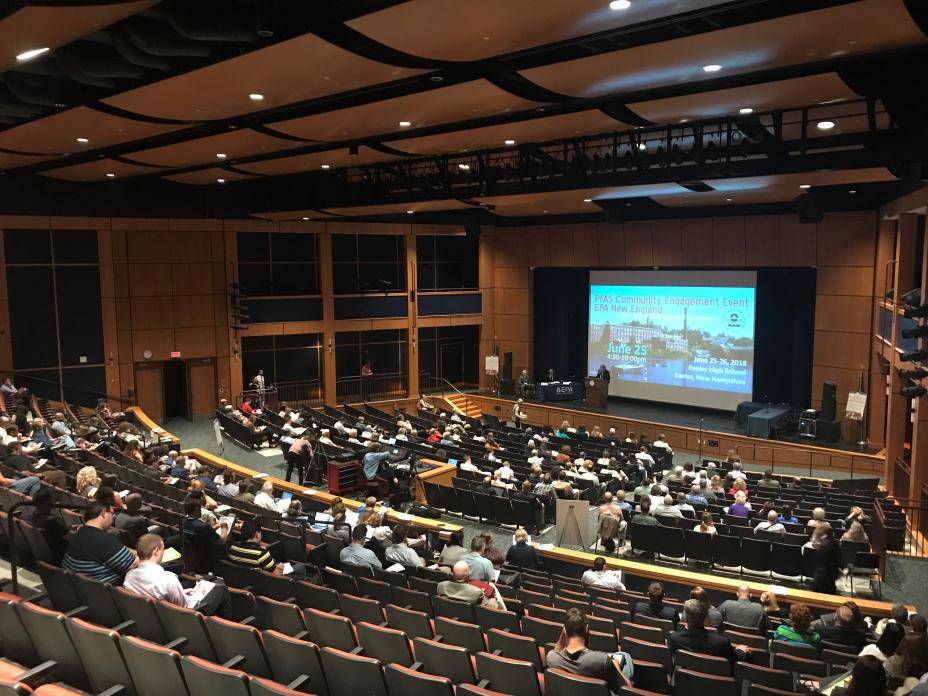News Releases from Headquarters›Water (OW)
EPA Hosts First Ever PFAS Community Engagement Event in New Hampshire, Hears from Communities Across New England
Exeter, N.H. – On Monday night, the U.S. Environmental Protection Agency (EPA) hosted the first day of a two-day per- and polyfluoroalkyl substances (PFAS) Community Engagement event in Exeter, N.H. with more than 200 participants. Following the historic National Leadership Summit on PFAS in Washington, D.C. last month, today’s session – the first of its kind – gave EPA the opportunity to hear directly from New England communities on how to best help address this important issue.
“It is critical EPA hears directly from the public as we work to manage the issue of PFAS in communities,” said EPA New England Regional Administrator Alexandra Dunn. “Participants provided an important perspective on how these chemicals are impacting communities, opening a productive conversation with the agency. This feedback will help us develop a management plan.”
Most importantly, EPA heard directly from the public at the listening session. Dozens of participants, including six community groups from New England spoke about their experiences, concerns, and suggestions on PFAS. Using information from the National Leadership Summit, public docket, and community engagement events, EPA plans to develop a PFAS Management Plan for release later this year.
Tomorrow’s session will feature a variety of perspectives on efforts to address PFAS from officials working at the federal, state and local levels. Day two of the event will run from 8:00 am until 3:00 pm. The event is open to the public and the press.
At the PFAS National Leadership Summit in Washington, D.C. on May 22-23, Administrator Pruitt announced four actions EPA will take:
-
EPA will initiate steps to evaluate the need for a maximum contaminant level (MCL) for PFOA and PFOS. We will convene our federal partners and examine everything we know about PFOA and PFOS in drinking water.
-
EPA is beginning the necessary steps to propose designating PFOA and PFOS as “hazardous substances” through one of the available statutory mechanisms, including potentially CERCLA Section 102.
-
EPA is currently developing groundwater cleanup recommendations for PFOA and PFOS at contaminated sites and will complete this task by fall of this year.
-
EPA is taking action in close collaboration with our federal and state partners to develop toxicity values for GenX and PFBS by this summer.
Background
PFAS is a group of man-made chemicals that have been widely used in everyday products since the 1940s. But PFAS compounds also can enter the environment, raising concerns about the potential environmental and health risks. PFAS have been detected in groundwater in some New England communities.
Citizens are also encouraged to submit written statements to the public docket at https://www.regulations.gov/ enter docket number: OW-2018-0270. A summary of the New England community engagement event will be made available on the PFAS Community Engagement website following the event.
New Hampshire marks the first community engagement. Throughout the summer, EPA will visit and similarly engage with additional communities across the country. Information on these upcoming sessions will also be available on the EPA website.
Additional information can be found at: https://www.epa.gov/pfas/pfas-community-engagement

